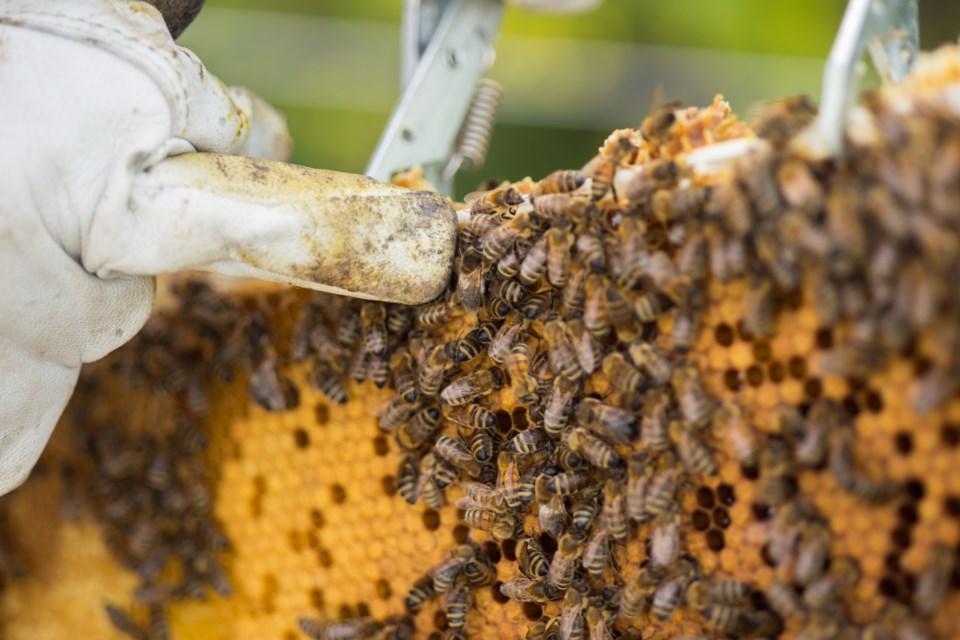With spring on the horizon, the City of St. Albert is considering how to adapt environmental operations to better support Alberta's 375 native bee species, rather than the invasive, disease spreading, and food-hogging honey bee.
In January, Alberta-based ecologist and Alberta Native Bee Council founder Megan Evans gave a presentation to the city's citizen-represented Environmental Advisory Committee (EAC). She spoke about the ongoing need to improve monitoring of native bee species across the province, and how cities like St. Albert can help.
“There is evidence in the scientific literature that shows that managed bees like honey bees can impact native bees in two ways: they can compete with native bees for limited food resources, or they can spread diseases,” Evans said in an interview.
“To the level of which those impacts happen, and the threshold levels, like how many managed bees are too many, we simply don't know,” she said. “There's lots of good research happening right now, but we need to have a lot more research to really understand those impacts.”
“People get really excited about beekeeping and honey bees, but there's a whole other world of native bees out there that we hope people can be equally excited about.”
Following Evans' presentation, the EAC passed a motion that recommends council and the city work in partnership with the Alberta Native Bee Council to support the monitoring and education around native bees in the community.
“We support the programming and resources that will increase education and awareness of native pollinators to enhance the health and diversity of our natural environment in the long term,” the EAC's motion reads.
EAC vice-chair Carmen Piercey told The Gazette in an interview the committee knew city administration was in the process of developing a program to help native bees in St. Albert, and wanted to add its approval and support.
“We want to show our support for any programming that they intend to develop for increasing education and awareness,” Piercey said. “The main goal is to increase education and awareness of native pollinators and whatever comes out of that we hope will ultimately improve the biodiversity of the environment in St. Albert.”
More details about the new programming designed to support native bees will be shared once the program is finalized, city spokesperson Nicole Lynch said in an email.
Lack of data
The Canadian government's 2020 Wild Species Status Report says of the 375 native bee species in Alberta, just 110 are considered secure and not at risk of extinction.
The status report says two species are considered critically imperilled, and at a "very high risk" for extinction; three species are considered at-risk; 11 are considered vulnerable; and the status of 216 species is currently unknowable due to a lack of monitoring data.
“It's absolutely amazing how many species we have,” Evans said, adding, “but (we) need more information (and) more active monitoring to understand what species are where to get a comprehensive inventory, and to understand what's happening to the species that are declining and what we can do to change that.”
“The Alberta Native Bee Council is here, as a nonprofit, with the objective seeing healthy and resilient native pollinators and their habitats in Alberta and that aligns with a lot of objectives of other organizations, including municipal governments,” she said.
To learn more about Alberta's native bee species, and what you can do to support them, resources and programming are available through the Alberta Native Bee Council's website.



